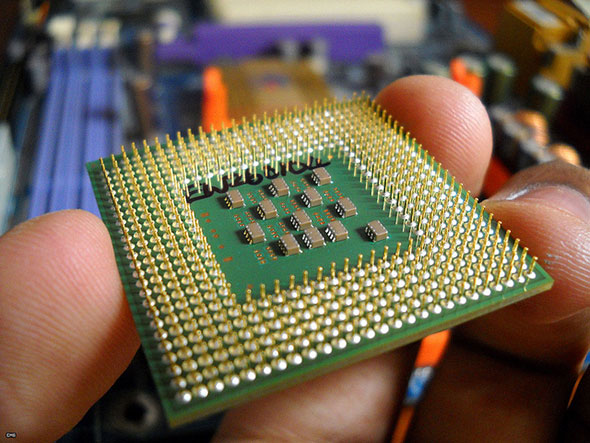Intel Settles In Class Action Suit, Paying $15 To Pentium 4 Customers Alleging Manipulated Benchmark Scores
Without admitting any wrongdoing, Intel has agreed to settle a class action lawsuit alleging that the Santa Clara chip maker manipulated benchmark scores for its first-generation Pentium 4 processors. The suit also alleges that Hewlett-Packard helped Intel fudge its scores in order to cover up "pervasive design flaws" resulting in "dismal" performance compared to the previous generation Pentium III and AMD's Athlon CPUs.
"Intel used its enormous resources and influence in the computing industry to, in Intel’s own words, 'falsely improve' the Pentium 4’s performance scores. It secretly wrote benchmark tests that would give the Pentium 4 higher scores, then released and marketed these 'new' benchmarks to performance reviewers as 'independent third-party' benchmarks," the lawsuit states. "It paid software companies to make covert programming changes to inflate the Pentium 4’s performance scores and even disabled features on the Pentium III so that the Pentium 4’s scores would look better by comparison."
The Pentium 4 introduced a new microarchitecture called Netburst. It initially featured a 20-stage pipeline, twice as long as its predecessor, in order to hit higher clockspeeds. Intel stretched things out even further in Prescott, which introduced a 31-stage pipeline. The downside to Intel's approach was that the longer stage pipeline meant a greater penalty when branch mis-predictions occurred. Nevertheless, Intel figured that increasingly higher clockspeeds would more than make up for deficiencies in the longer stage pipelines, especially if scaled to 10GHz as originally planned, though power dissipation and heat presented technical challenges that ultimately saw the end of Netburst in 2006.
According to the lawsuit, Intel essentially pulled the wool over its customers eyes by introducing a pair of benchmarking tests called WebMark 2001 an SYSmark 2001, both of which "made the Pentium 4 appear superior to the Pentium III and Athlon." The lawsuit says the benchmarks were created in-house by Intel and not by a neutral benchmarking company like Intel claimed.
The lawsuit goes on and on with alleged grievances, the end result of which is that you may be eligible for a $15 reimbursement if you bought a computer with a Pentium 4 processor between November 20, 2000 and June 30, 2002. If you did, you can file a claim here, as well as find out more about the suit.
"Intel used its enormous resources and influence in the computing industry to, in Intel’s own words, 'falsely improve' the Pentium 4’s performance scores. It secretly wrote benchmark tests that would give the Pentium 4 higher scores, then released and marketed these 'new' benchmarks to performance reviewers as 'independent third-party' benchmarks," the lawsuit states. "It paid software companies to make covert programming changes to inflate the Pentium 4’s performance scores and even disabled features on the Pentium III so that the Pentium 4’s scores would look better by comparison."
The Pentium 4 introduced a new microarchitecture called Netburst. It initially featured a 20-stage pipeline, twice as long as its predecessor, in order to hit higher clockspeeds. Intel stretched things out even further in Prescott, which introduced a 31-stage pipeline. The downside to Intel's approach was that the longer stage pipeline meant a greater penalty when branch mis-predictions occurred. Nevertheless, Intel figured that increasingly higher clockspeeds would more than make up for deficiencies in the longer stage pipelines, especially if scaled to 10GHz as originally planned, though power dissipation and heat presented technical challenges that ultimately saw the end of Netburst in 2006.
According to the lawsuit, Intel essentially pulled the wool over its customers eyes by introducing a pair of benchmarking tests called WebMark 2001 an SYSmark 2001, both of which "made the Pentium 4 appear superior to the Pentium III and Athlon." The lawsuit says the benchmarks were created in-house by Intel and not by a neutral benchmarking company like Intel claimed.
The lawsuit goes on and on with alleged grievances, the end result of which is that you may be eligible for a $15 reimbursement if you bought a computer with a Pentium 4 processor between November 20, 2000 and June 30, 2002. If you did, you can file a claim here, as well as find out more about the suit.


